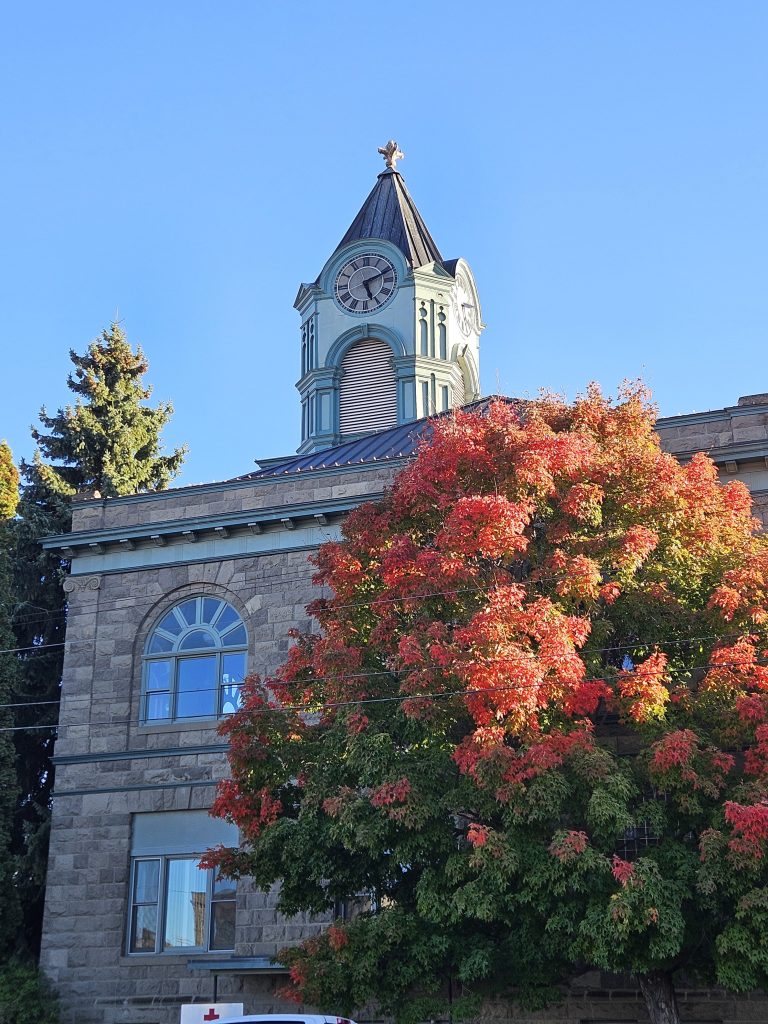Baker City, Baker County officials disagree about spending lodging tax dollars
Published 11:53 am Wednesday, April 2, 2025
The fate of about $1.5 million in taxes paid by guests at local motels and other lodging businesses has provoked a debate between Baker City and Baker County officials.
The Baker City Council voted 5-1 on March 11 to send a letter to the county stating the city’s intention to withdraw from a 2006 agreement that made the county responsible for collecting the lodging tax, including within the city limits.
City Manager Barry Murphy recommended the city withdraw from the pact starting July 1, 2025.
Murphy told county commissioners during their meeting Wednesday morning, April 2, that he disagrees with county attorney Kim Mosier’s conclusion about the county’s lodging tax ordinance.
Mosier told commissioners that even though the city is withdrawing from the 2006 agreement, the county ordinance continues to prescribe how lodging taxes that have already been collected are spent.
That ordinance requires that 70% of the revenue be spent for tourism marketing, and 25% for economic development. The county can keep up to 5% of revenue to collect and administer the tax.
There is nothing in the ordinance that ensures Baker City would receive any unspent tax revenue if the city drops out of the 2006 agreement.
But Murphy and Baker City Mayor Randy Daugherty, in a Monday, March 31, letter to the county, proposed that the city receive 80% of lodging taxes remaining in the county budget as of July 1, 2026. The letter projects that the city would get $1,252,000, and the county would keep the remaining $313,000 (20% of the total).
Murphy told commissioners Wednesday that he believes the city’s proposal is “reasonable” based on the percentage of tax money collected within the city limits.
But Commissioner Christina Witham contends the county must comply with its ordinance, which doesn’t include any provision to give the city a “lump sum” of tax revenue.
Nor does the 2006 agreement include such a clause, Witham said.
She told Murphy and Daugherty that the city can ask the county lodging tax committee, which has a city-appointed member, for a share of the unspent revenue.
That committee advises commissioners, who have the final authority to budget lodging tax dollars.
Murphy countered by saying that he’s concerned that if the city did ask the committee for a share of revenue, commissioners would deny the request.
Witham said that’s not certain.
She said commissioners would consider any “legitimate” request that calls for spending lodging taxes as set out in the ordinance — for either tourism marketing or economic development.
“If it’s a legitimate purpose of course it will be considered,” Witham said.
But Murphy was not mollified.
He said the “whole reason” he recommended the city council withdraw from the 2006 agreement is the county’s “attitude” that the city has no say in how lodging taxes are spent.
Commissioner Michelle Kaseberg said she thinks the county should work with city officials to find an equitable way to disburse lodging taxes. She encouraged Murphy to make a request, with specific uses for the money, to the lodging tax committee.
“I would be happy to try,” Murphy said. “I would ask for some cooperation.”
Kaseberg acknowledged that a significant amount of lodging taxes are paid by guests at businesses in Baker City.
“Is there a way to make it right and make it that we’re all good partners?” Kaseberg said. “I think there is.”
Mosier said the city could always seek a different legal opinion about the county’s ordinance.
Murphy replied that that might be necessary.
City’s proposal
In addition to asking for 80% of the beginning fund balance as of July 1, 2026, the city’s proposal calls for the county for an “immediate suspension” of spending from the budget line item titled “tourism-related fund” in the county’s TRT marketing fund for the current fiscal year, which ends June 30, 2025. That line item was budgeted for $900,000 for the current fiscal year.
The city’s proposal states that the spending freeze would result in the beginning fund balance for TRT marketing to increase to “at least $2,009,104” when the new fiscal year starts July 1, 2025.
The city is proposing a one-year “transition” — the fiscal year that starts July 1, 2025 — during which tourism marketing would continue as it has for more than a decade. That includes continuing the existing contracts for the Baker County Chamber of Commerce to operate the visitors center on Campbell Street near the freeway ($94,970), with Jessica Hobson as the county’s tourism marketing director ($70,000), and $80,000 for Baker City Downtown.
Maintaining the contracts “will allow both Baker County and Baker City to have a year of discussion on how each entity will handle tourism promotion” starting July 1, 2026, the city’s proposal states.







